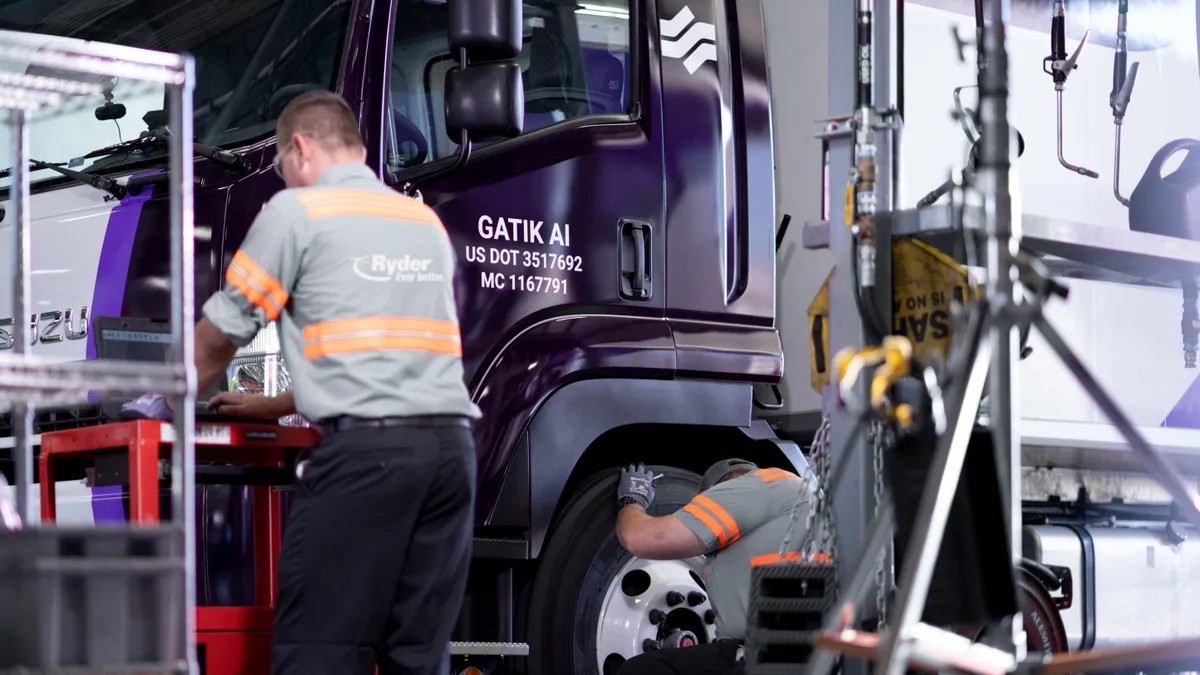Ryder is gathering its technology leaders to create a center of excellence for artificial intelligence.
The group will evaluate and prioritize ideas for potential AI use cases. But leadership wants to make sure data is secure and any deployments of the technology are safe and appropriate.
With some 47,500 full-time employees in North America as of Dec. 31, 2023, Ryder can tap ideas from workers but wants to do so in a thoughtful and methodical manner.
“All these good ideas that are coming up — are we prioritizing them and then going after them ... in the right direction?” Brian Wood, Ryder’s VP of Enterprise Technology Services, said in an interview last week. “This is a game-changing situation.”
Wood said while existing frameworks are in place for other technology, such as machine learning, the company wants to make sure it’s approaching artificial intelligence in a concerted way, avoiding unnecessary overlap.
The group will be spearheaded by Chief Marketing Officer Karen Jones and Chief Information Officer Rajeev Ravindran. Other group members include divisional CIOs as well as officials across business units such as dedicated, fleet management, supply chain and finance.
The group is slated to begin meeting next month.
Current AI developments
AI is not new to Ryder — the company has been using AI for years through predictive software, Wood said. Now generative AI is taking that to another dimension.
As one example, Ryder is building a generative AI capability for call center agents to summarize call logs to improve efficiencies and customer service, he said. The tech could quickly bring a call center agent up to speed with all the information previously documented with a short summary.
“We're building it internally, but we're linking it to some existing applications within the call center so that it's seamless for the call center agent,” Wood said.
Last year, the supply chain and transportation services provider announced the creation of a Silicon Valley tech lab led by the founders of Baton, which Ryder acquired in 2022. The startup aims to optimize transportation networks and eliminate waste in part by using data to improve scheduling.
“These technologies will digitize and optimize networks at a level not currently available in the industry and will prepare Ryder for the coming artificial intelligence (AI) wave,” the company said in the announcement.
‘A whole new world of opportunity’
At the company’s Investor Day in June, Jones described how the technology could drive internal operational efficiencies and help Ryder customers benchmark maintenance performance across fleets.
She further detailed the potential of the technology to make a difference, noting at a panel that AI computing power can now speed up training robots exponentially faster. She also said that humanoids don’t call in sick and can work 24/7.
“It opens up a whole new world of opportunity for us to look at,” she said.
She added that RyderVentures, a corporate venture capital fund, allows the company to get a first glance to evaluate such technologies and determine the business’ future investment and rollout to customers.












